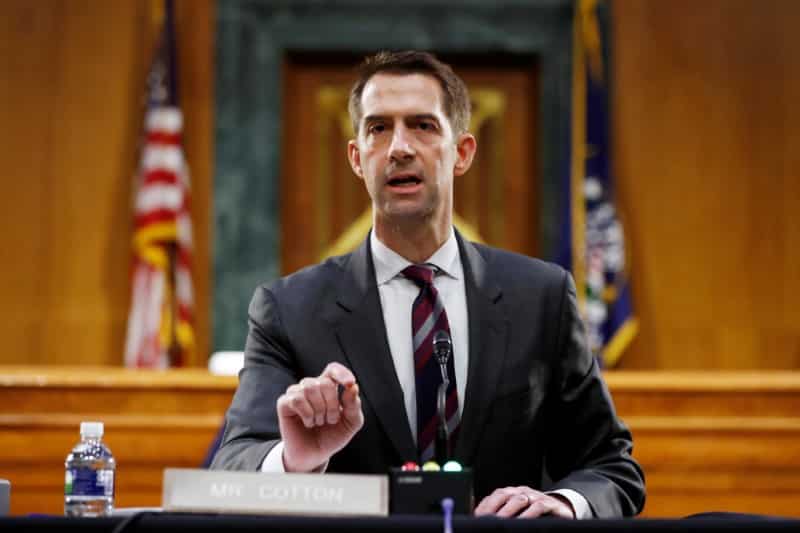Republican Sens. Tom Cotton of Arkansas, Bill Hagerty and Marsha Blackburn of Tennessee, and Tim Scott of South Carolina introduced new legislation on Thursday that would protect American colleges from foreign influences, especially from the Chinese Communist Party.
“The Chinese Communist Party has made consistent attempts to infiltrate American colleges and universities. Our bill will close donation loopholes, barring the CCP and other foreign agents from donating millions, or even billions, to levy influence and steal American intellectual property,” Cotton said in a news release.
The CCP has made consistent attempts to infiltrate American colleges and universities. Our bill will close donation loopholes, barring the CCP and other foreign agents from donating millions to levy influence and steal American intellectual property.https://t.co/Wz2cbKKr6y
— Tom Cotton (@SenTomCotton) June 17, 2021
Hagerty said, “As a strategic adversary seeking to overtake the United States, the Chinese Communist Party is going to extraordinary lengths to exert malign influence over America’s free and open society, including our higher education system.”
He added, “By increasing transparency, closing loopholes, and imposing new civil penalties in U.S. law, this important legislation seeks to prevent the CCP and its intermediaries from hiding in the shadows to buy control and influence within our higher education, to manipulate what American students are taught about China, and to steal intellectual property from our nation’s researchers.”
Blackburn also noted China’s use of money to influence American higher education.
“Communist China has infiltrated American colleges and universities. It is imperative we cut off Beijing’s access to funnel money in exchange for influence in higher education,” she said.
“Our children’s education should not be available for purchase by the CCP,” Blackburn added.
Scott said the CCP serves as a bad example of foreign competition: “Attempts by the Chinese Communist Party and other bad actors to infiltrate the American education system is a blatant example of foreign competitors trying to maintain and expand their global power to our detriment.”
He added, “By holding institutions of higher education accountable for foreign donations we are taking necessary steps to promote transparency, protect our intellectual property, and ensure our country’s future leaders get a quality education.”
Cotton published a report in February called “Beat China: Targeted Decoupling and the Economic Long War” to explore the threat China poses to the U.S. economy.
He wrote in the report, “China started its struggle for mastery against the United States decades ago, but only recently has America awoken to the challenge.”
According to the Thursday news release, the Department of Education created an online reporting portal last June. The system has already “recorded $3.8 billion in foreign gifts and contracts.”
The new legislation would tighten restrictions and provide stronger transparency to reduce influences from outside governments.
Last year, House Speaker Nancy Pelosi blocked a bill that sought to protect American universities from the influence of the Confucius Institute, the Washington Free Beacon reported.
Pelosi blocked the bill which protects America from #CCP uses Confucius Institute to infiltrate our university campuses because she owes China for this stolen election. Like Hunter Biden’s BHR is Bank of China’s subsidiary, today’s DNC is CCP’s subsidiary. https://t.co/7Em5Ydajkm
— Solomon Yue (@SolomonYue) December 19, 2020
House Minority Leader Kevin McCarthy criticized Democrats for failing to address the threats posed by the Chinese government, according to a December report by The National Pulse.
“The changes to the Confucius Institute language in NDAA are another example of the Democrats’ China problem. Americans know a whole-of-society approach is needed to combat the Chinese Communist Party’s attacks on our democratic freedoms. We must take a comprehensive approach, especially drawing from the China Task Force’s recommendations, so that our solutions are not constrained in scope in this way,” he said.
This article appeared originally on The Western Journal.

























 Continue with Google
Continue with Google